Why Is the Possibility of Revising Iran’s Nuclear Doctrine Raised
Strategic Council Online – Note: Iran has done more than its share for the nuclear non-proliferation regime.
Strategic Council Online – Note: Iran has done more than its share for the nuclear non-proliferation regime.
Strategic Council Online: The President of the Strategic Council on Foreign Relations stated: “The US State Department spokesperson, after my interview with Al Jazeera, reiterated their past remarks, stating that they won’t allow Iran to build nuclear weapons, but ultimately said diplomacy is the best approach. Yes, we too prefer diplomacy since based on the Fatwa of our Supreme Leader are not for nuclear weapons; rather, we are advocates of diplomacy to make the Middle East a nuclear-free region. But, in case the Israeli regime threatens us with nuclear weapons, we surely cannot sit idle and wait for permission from others.”
Strategic Council Online – Opinion: The strategic Strait of Bab al-Mandab and the Red Sea have recently faced serious problems and crises due to the Gaza war. This is because of the protectionist approach of the Yemeni army forces toward Palestine, which, since the beginning of the Israeli regime’s attacks on the Gaza Strip, has included attacks on ships bound for or from the origin of the regime in the Red Sea.
They said they will continue their attacks until the Israeli regime’s military aggression in the Gaza Strip ends. The United States, as the most important supporter of the Israeli regime, was the first country to respond to this policy of Yemeni army forces and tried to form a global coalition to counter these attacks under the cover of supporting freedom of navigation, which, of course, failed because of conflicts of interests of Western countries and ended in the actions of the US and British attacks on positions in Yemen. Of course, although European countries were not seriously involved in the American coalition, they have numerous and complex interests in this inflammatory, and as a result, have adopted a particular and independent approach.
Dr. Mohammad Mehdi Mazaheri – University Professor
Strategic Council Online – Interview: An expert on regional issues said Qatari authorities will definitely resist Western pressure to expel Hamas leaders from their territory, and probably the United States will not move towards a zero-hundred equation in this regard because if the Hamas leaders remain in Qatar, which is an ally of the United States, is better than moving to a country outside the power of the United States to exert pressure.
Strategic Council Online – Opinion: Student protests in America take on new dimensions every day.
Because the university enjoys higher public trust and social capital than other civil and social institutions and is, therefore, more effective, the current protests put the U.S. government in a “difficult situation” that is clear in the statements of current and former U.S. officials.
Hamid Khoshayand – International Affairs Expert
Strategic Council Online: The 3rd Iranian-Arab Dialogue Conference, titled “For Cooperation and Interaction,” will be inaugurated on April 23rd in Tehran, hosted by the Strategic Council on Foreign Relations.
Strategic Council Online – Interview: An expert on Caucasus issues said that Swedish Foreign Minister Tobias Billström recently announced that EU states plan to include the ban on the supply of liquefied natural gas (LNG) in the sanctions against Russia.
Strategic Council Online—Interview: An expert on strategic issues said: The US Navy has put a project on the agenda to convert surplus oil platforms into mobile missile defense bases in the Pacific Ocean and face China’s threats. These platforms are supposed to be deployed in response to China’s growing missile threats in the Pacific region. Platforms converted into missile defense bases are expected to play an important role in increasing US air defense capabilities and assisting in the country’s strike missions.

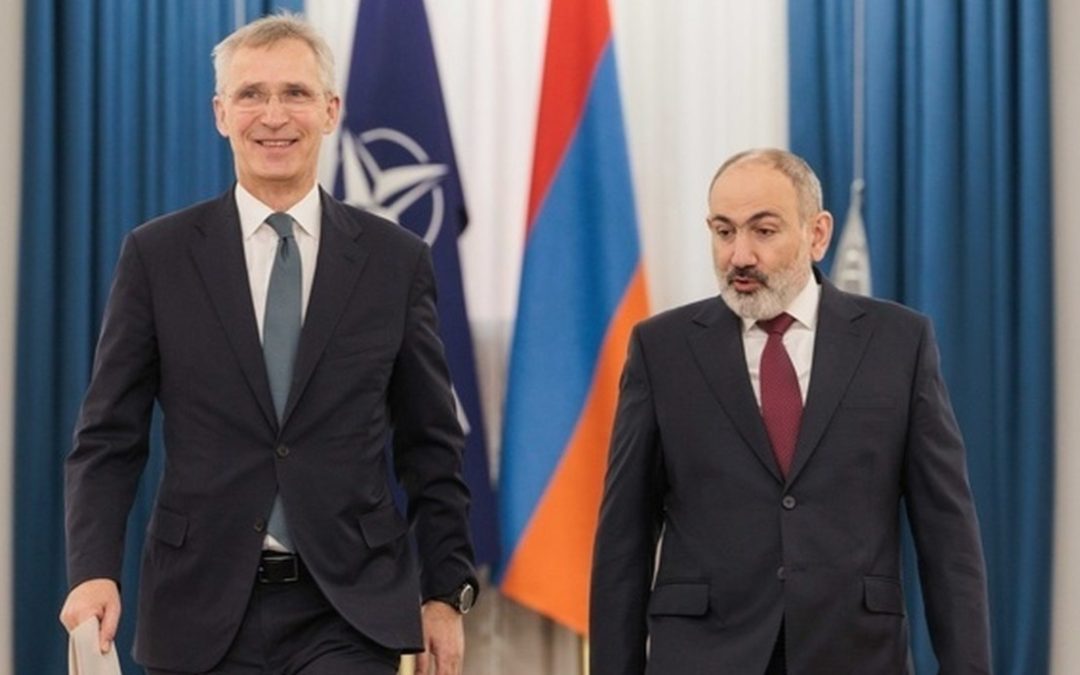
Strategic Council Online – Interview: A Caucasus affairs expert said: “If the trend of divergence among regional countries, especially Armenia and Azerbaijan, from Russia accelerates, Russians may show a more serious reaction and even prevent the traditional regional order change using force.”
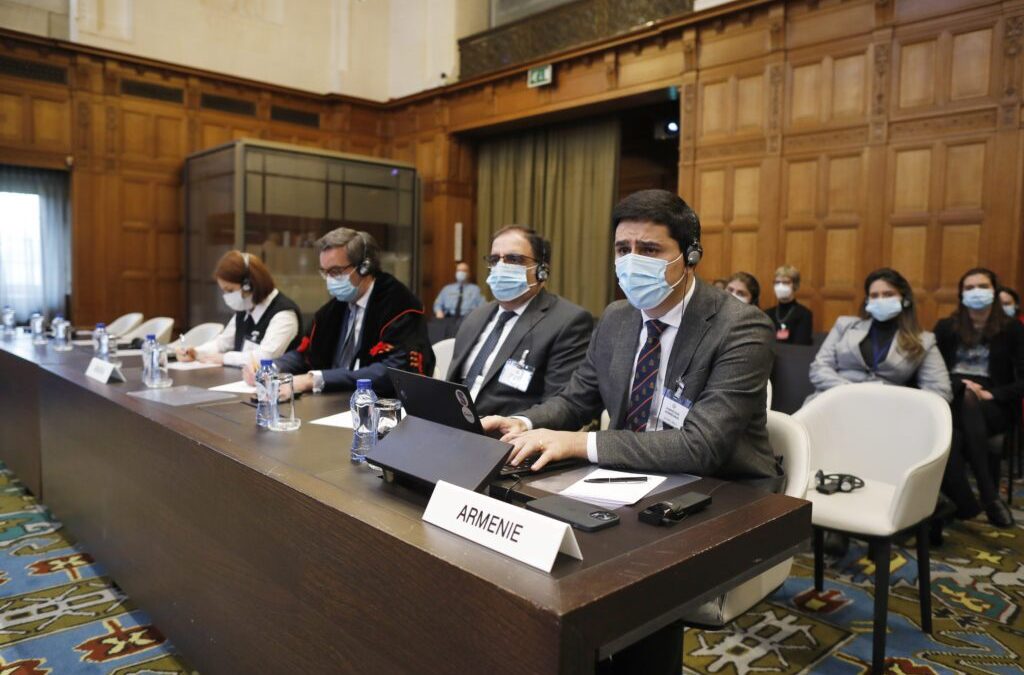
Strategic Council Online – Interview: A professor of international law, recalling that one of the motivations for closing the Lachin Corridor by the Republic of Azerbaijan was the pressure on Armenia to agree with the “Zangezur Corridor”, said: With the strong verdict of The Hague in favor of Armenia, international pressure and pressure of public opinion has been created against Baku to open the Lachin Corridor, but in any case, Baku is backed by its trans-regional allies who also have the veto power in the UN Security Council, and there are doubts about stopping the pressure on Armenia in this direction.
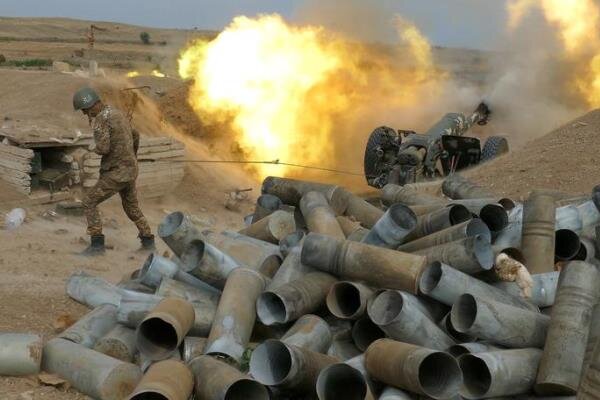
Strategic Council Online – Opinion: With the start of the Russian war in Ukraine, the military movements of the Republic of Azerbaijan in Karabakh were not beyond expectation.
Mehdi Khorsand – Expert in Eurasia affairs
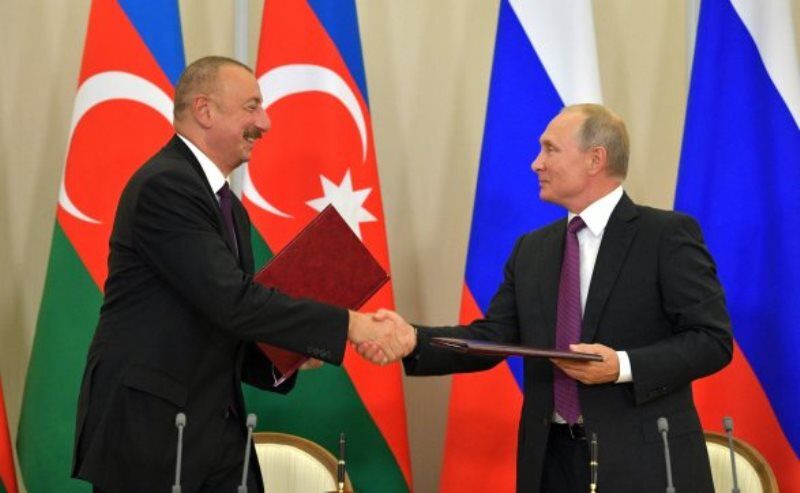
Strategic Council Online – Interview: An expert on international law stressed: Baku is concerned about the possibility of Russia recognizing the independence of the Karabakh region in coming years, and according to the Declaration on Allied Interaction, it gives guarantees to Russia so that Moscow will not implement the formula of supporting separatism in Karabakh and even in the Lezgian regions of northern Azerbaijan.
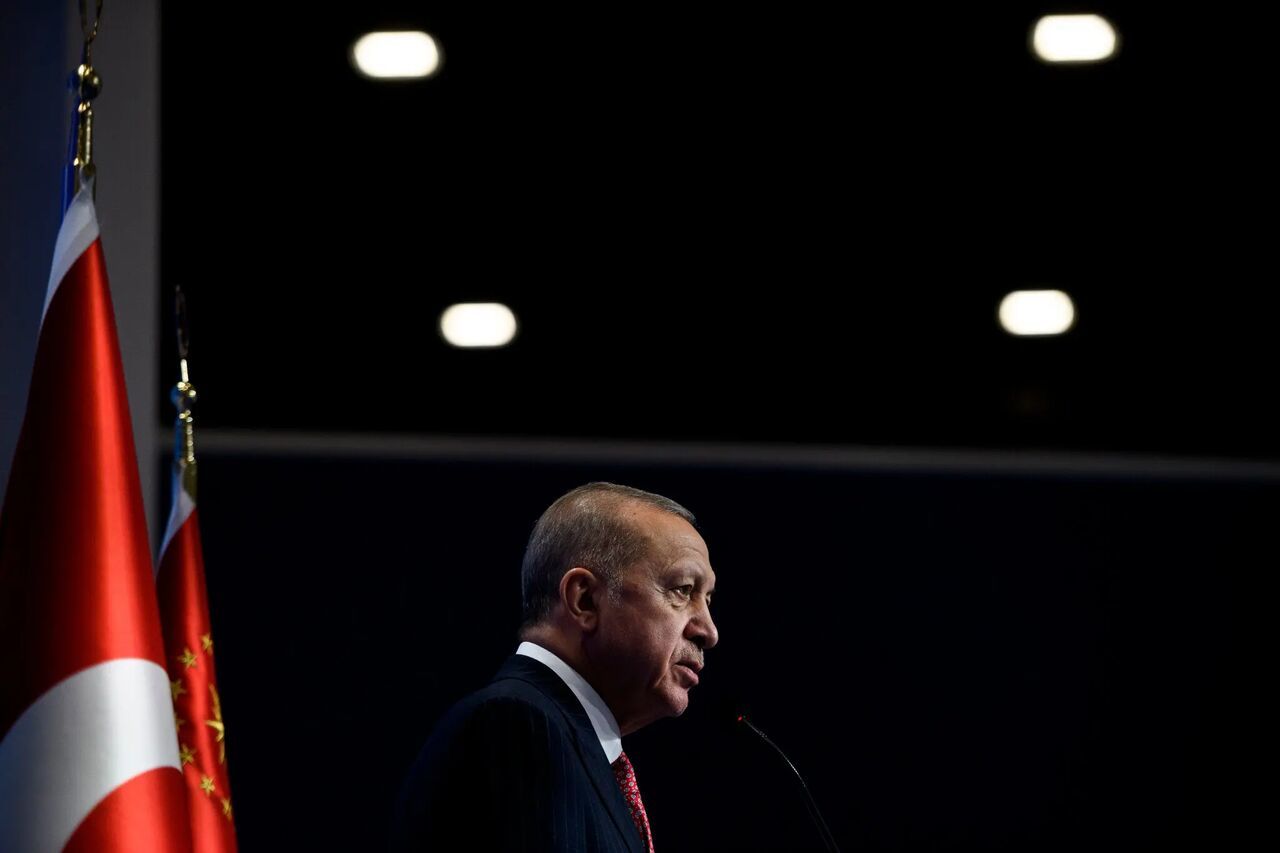
Strategic Council Online – Interview: An expert of the Middle East issues commented on the recent movements between Ankara and Tel Aviv and said Recep Tayyib Erdogan, President of Turkey tries to expand relations with the Zionist regime. Having adopted such a policy, Islamic Ummah, particularly Palestinians will react negatively to the measure.
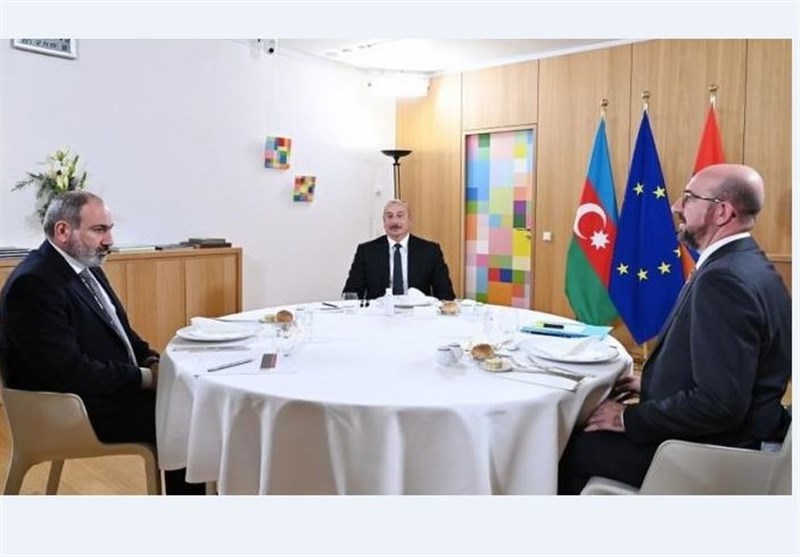
Strategic Council Online – Interview: The head of the Caucasus Studies Foundation, saying that Turkey, the Republic of Azerbaijan and Armenia are seeking to de-escalate and normalize their relations added: There is the possibility that communication lines will be opened under the control and supervision of Russian forces, and in this regard, Turkey and the Republic of Azerbaijan should also deviate from their ambitious demands.
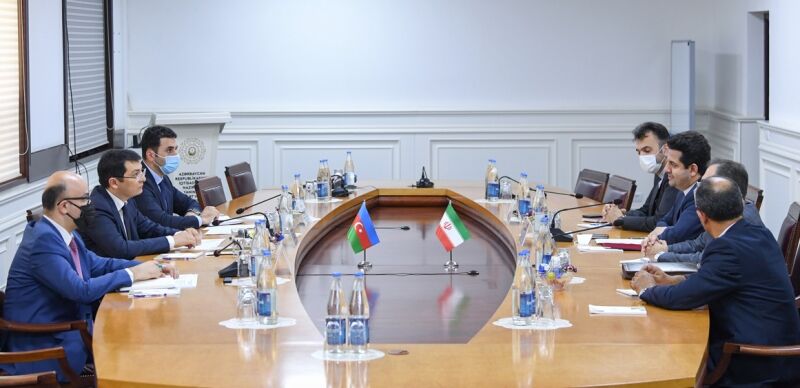
Strategic Council Online – Opinion: Iran’s view of the Republic of Azerbaijan as one of the important Muslim and neighboring countries is beyond the usual views and is in the direction of maintaining, deepening, and expanding bilateral relations to a strategic level.
Hamid Khoshayand – Expert of regional affairs
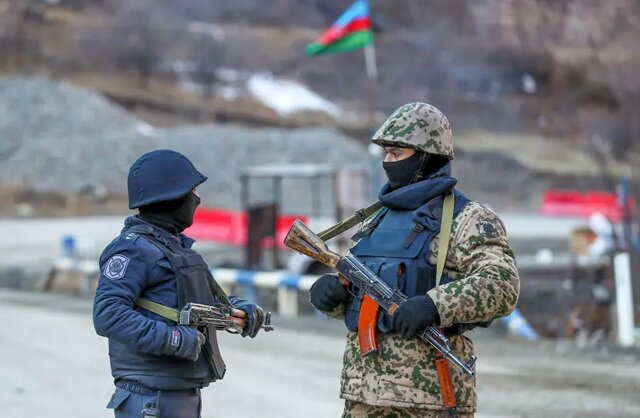
Strategic Council Online – Interview: An expert on the Caucasus affairs stressed that political and legal problems of the Moscow ceasefire agreement have paved the way for its violation, saying: The recent ceasefire between Baku and Yerevan will not be sustainable either.
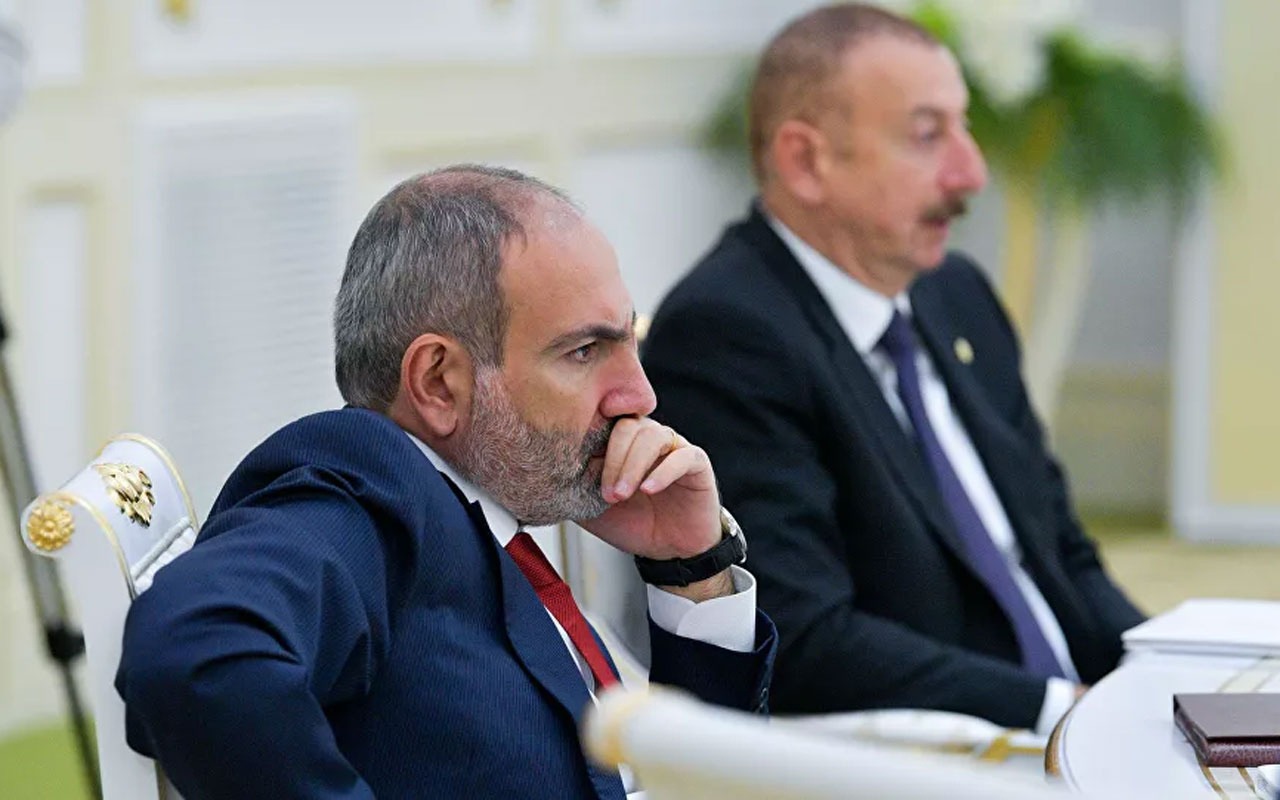
Strategic Council Online—Interview: An analyst of Caucasus issues says it is necessary to maintain the balance of power in the south Caucasus region, adding that if with the disruption of the balance of power in the region, issues proceed in a competitive manner among the actors, every cognitive error and miscalculation may cause great tensions in the region and even lead to a military confrontation.
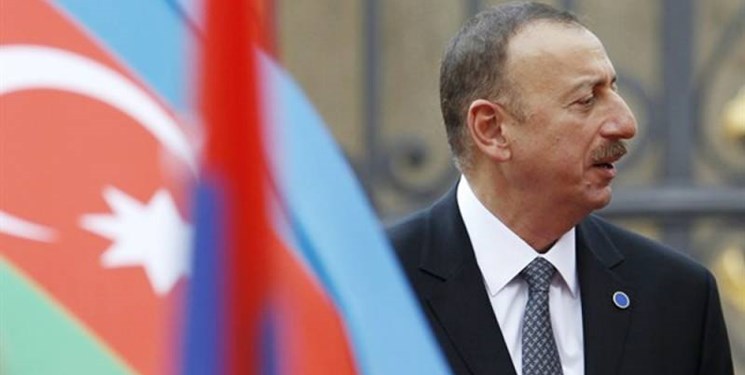
Strategic Council Online – Interview: An expert on international and regional affairs, referring to the destructive role of the Zionist regime in the Caucasus and considering the confession of the President of Azerbaijan on using Israeli drones, said: The recent provocative actions of the government of President Ilham Aliyev in holding a joint maneuver with Turkey and the Zionist regime along Iran’s northwestern borders and Aliyev’s accusations against Iran within the context of his family’s long-standing and unacceptable ambition to change the geopolitics of the Caucasus can be analyzed.
Strategic Council Online – Note: Iran has done more than its share for the nuclear non-proliferation regime.
Strategic Council Online: The President of the Strategic Council on Foreign Relations stated: “The US State Department spokesperson, after my interview with Al Jazeera, reiterated their past remarks, stating that they won’t allow Iran to build nuclear weapons, but ultimately said diplomacy is the best approach. Yes, we too prefer diplomacy since based on the Fatwa of our Supreme Leader are not for nuclear weapons; rather, we are advocates of diplomacy to make the Middle East a nuclear-free region. But, in case the Israeli regime threatens us with nuclear weapons, we surely cannot sit idle and wait for permission from others.”
Strategic Council Online – Opinion: The strategic Strait of Bab al-Mandab and the Red Sea have recently faced serious problems and crises due to the Gaza war. This is because of the protectionist approach of the Yemeni army forces toward Palestine, which, since the beginning of the Israeli regime’s attacks on the Gaza Strip, has included attacks on ships bound for or from the origin of the regime in the Red Sea.
They said they will continue their attacks until the Israeli regime’s military aggression in the Gaza Strip ends. The United States, as the most important supporter of the Israeli regime, was the first country to respond to this policy of Yemeni army forces and tried to form a global coalition to counter these attacks under the cover of supporting freedom of navigation, which, of course, failed because of conflicts of interests of Western countries and ended in the actions of the US and British attacks on positions in Yemen. Of course, although European countries were not seriously involved in the American coalition, they have numerous and complex interests in this inflammatory, and as a result, have adopted a particular and independent approach.
Dr. Mohammad Mehdi Mazaheri – University Professor
Strategic Council Online – Interview: An expert on regional issues said Qatari authorities will definitely resist Western pressure to expel Hamas leaders from their territory, and probably the United States will not move towards a zero-hundred equation in this regard because if the Hamas leaders remain in Qatar, which is an ally of the United States, is better than moving to a country outside the power of the United States to exert pressure.
Strategic Council Online – Opinion: Student protests in America take on new dimensions every day.
Because the university enjoys higher public trust and social capital than other civil and social institutions and is, therefore, more effective, the current protests put the U.S. government in a “difficult situation” that is clear in the statements of current and former U.S. officials.
Hamid Khoshayand – International Affairs Expert
Strategic Council Online: The 3rd Iranian-Arab Dialogue Conference, titled “For Cooperation and Interaction,” will be inaugurated on April 23rd in Tehran, hosted by the Strategic Council on Foreign Relations.
Strategic Council Online – Interview: An expert on Caucasus issues said that Swedish Foreign Minister Tobias Billström recently announced that EU states plan to include the ban on the supply of liquefied natural gas (LNG) in the sanctions against Russia.
Strategic Council Online—Interview: An expert on strategic issues said: The US Navy has put a project on the agenda to convert surplus oil platforms into mobile missile defense bases in the Pacific Ocean and face China’s threats. These platforms are supposed to be deployed in response to China’s growing missile threats in the Pacific region. Platforms converted into missile defense bases are expected to play an important role in increasing US air defense capabilities and assisting in the country’s strike missions.


Strategic Council Online – Interview: A Caucasus affairs expert said: “If the trend of divergence among regional countries, especially Armenia and Azerbaijan, from Russia accelerates, Russians may show a more serious reaction and even prevent the traditional regional order change using force.”

Strategic Council Online – Interview: A professor of international law, recalling that one of the motivations for closing the Lachin Corridor by the Republic of Azerbaijan was the pressure on Armenia to agree with the “Zangezur Corridor”, said: With the strong verdict of The Hague in favor of Armenia, international pressure and pressure of public opinion has been created against Baku to open the Lachin Corridor, but in any case, Baku is backed by its trans-regional allies who also have the veto power in the UN Security Council, and there are doubts about stopping the pressure on Armenia in this direction.

Strategic Council Online – Opinion: With the start of the Russian war in Ukraine, the military movements of the Republic of Azerbaijan in Karabakh were not beyond expectation.
Mehdi Khorsand – Expert in Eurasia affairs

Strategic Council Online – Interview: An expert on international law stressed: Baku is concerned about the possibility of Russia recognizing the independence of the Karabakh region in coming years, and according to the Declaration on Allied Interaction, it gives guarantees to Russia so that Moscow will not implement the formula of supporting separatism in Karabakh and even in the Lezgian regions of northern Azerbaijan.

Strategic Council Online – Interview: An expert of the Middle East issues commented on the recent movements between Ankara and Tel Aviv and said Recep Tayyib Erdogan, President of Turkey tries to expand relations with the Zionist regime. Having adopted such a policy, Islamic Ummah, particularly Palestinians will react negatively to the measure.

Strategic Council Online – Interview: The head of the Caucasus Studies Foundation, saying that Turkey, the Republic of Azerbaijan and Armenia are seeking to de-escalate and normalize their relations added: There is the possibility that communication lines will be opened under the control and supervision of Russian forces, and in this regard, Turkey and the Republic of Azerbaijan should also deviate from their ambitious demands.

Strategic Council Online – Opinion: Iran’s view of the Republic of Azerbaijan as one of the important Muslim and neighboring countries is beyond the usual views and is in the direction of maintaining, deepening, and expanding bilateral relations to a strategic level.
Hamid Khoshayand – Expert of regional affairs

Strategic Council Online – Interview: An expert on the Caucasus affairs stressed that political and legal problems of the Moscow ceasefire agreement have paved the way for its violation, saying: The recent ceasefire between Baku and Yerevan will not be sustainable either.

Strategic Council Online—Interview: An analyst of Caucasus issues says it is necessary to maintain the balance of power in the south Caucasus region, adding that if with the disruption of the balance of power in the region, issues proceed in a competitive manner among the actors, every cognitive error and miscalculation may cause great tensions in the region and even lead to a military confrontation.

Strategic Council Online – Interview: An expert on international and regional affairs, referring to the destructive role of the Zionist regime in the Caucasus and considering the confession of the President of Azerbaijan on using Israeli drones, said: The recent provocative actions of the government of President Ilham Aliyev in holding a joint maneuver with Turkey and the Zionist regime along Iran’s northwestern borders and Aliyev’s accusations against Iran within the context of his family’s long-standing and unacceptable ambition to change the geopolitics of the Caucasus can be analyzed.

Strategic Council Online – Interview: A Caucasus affairs expert said: “If the trend of divergence among regional countries, especially Armenia and Azerbaijan, from Russia accelerates, Russians may show a more serious reaction and even prevent the traditional regional order change using force.”

Strategic Council Online – Interview: A professor of international law, recalling that one of the motivations for closing the Lachin Corridor by the Republic of Azerbaijan was the pressure on Armenia to agree with the “Zangezur Corridor”, said: With the strong verdict of The Hague in favor of Armenia, international pressure and pressure of public opinion has been created against Baku to open the Lachin Corridor, but in any case, Baku is backed by its trans-regional allies who also have the veto power in the UN Security Council, and there are doubts about stopping the pressure on Armenia in this direction.

Strategic Council Online – Opinion: With the start of the Russian war in Ukraine, the military movements of the Republic of Azerbaijan in Karabakh were not beyond expectation.
Mehdi Khorsand – Expert in Eurasia affairs

Strategic Council Online – Interview: An expert on international law stressed: Baku is concerned about the possibility of Russia recognizing the independence of the Karabakh region in coming years, and according to the Declaration on Allied Interaction, it gives guarantees to Russia so that Moscow will not implement the formula of supporting separatism in Karabakh and even in the Lezgian regions of northern Azerbaijan.

Strategic Council Online – Interview: An expert of the Middle East issues commented on the recent movements between Ankara and Tel Aviv and said Recep Tayyib Erdogan, President of Turkey tries to expand relations with the Zionist regime. Having adopted such a policy, Islamic Ummah, particularly Palestinians will react negatively to the measure.

Strategic Council Online – Interview: The head of the Caucasus Studies Foundation, saying that Turkey, the Republic of Azerbaijan and Armenia are seeking to de-escalate and normalize their relations added: There is the possibility that communication lines will be opened under the control and supervision of Russian forces, and in this regard, Turkey and the Republic of Azerbaijan should also deviate from their ambitious demands.

Strategic Council Online – Opinion: Iran’s view of the Republic of Azerbaijan as one of the important Muslim and neighboring countries is beyond the usual views and is in the direction of maintaining, deepening, and expanding bilateral relations to a strategic level.
Hamid Khoshayand – Expert of regional affairs

Strategic Council Online – Interview: An expert on the Caucasus affairs stressed that political and legal problems of the Moscow ceasefire agreement have paved the way for its violation, saying: The recent ceasefire between Baku and Yerevan will not be sustainable either.

Strategic Council Online—Interview: An analyst of Caucasus issues says it is necessary to maintain the balance of power in the south Caucasus region, adding that if with the disruption of the balance of power in the region, issues proceed in a competitive manner among the actors, every cognitive error and miscalculation may cause great tensions in the region and even lead to a military confrontation.

Strategic Council Online – Interview: An expert on international and regional affairs, referring to the destructive role of the Zionist regime in the Caucasus and considering the confession of the President of Azerbaijan on using Israeli drones, said: The recent provocative actions of the government of President Ilham Aliyev in holding a joint maneuver with Turkey and the Zionist regime along Iran’s northwestern borders and Aliyev’s accusations against Iran within the context of his family’s long-standing and unacceptable ambition to change the geopolitics of the Caucasus can be analyzed.
Strategic Council Online – Note: Iran has done more than its share for the nuclear non-proliferation regime.
Strategic Council Online: The President of the Strategic Council on Foreign Relations stated: “The US State Department spokesperson, after my interview with Al Jazeera, reiterated their past remarks, stating that they won’t allow Iran to build nuclear weapons, but ultimately said diplomacy is the best approach. Yes, we too prefer diplomacy since based on the Fatwa of our Supreme Leader are not for nuclear weapons; rather, we are advocates of diplomacy to make the Middle East a nuclear-free region. But, in case the Israeli regime threatens us with nuclear weapons, we surely cannot sit idle and wait for permission from others.”
Strategic Council Online – Opinion: The strategic Strait of Bab al-Mandab and the Red Sea have recently faced serious problems and crises due to the Gaza war. This is because of the protectionist approach of the Yemeni army forces toward Palestine, which, since the beginning of the Israeli regime’s attacks on the Gaza Strip, has included attacks on ships bound for or from the origin of the regime in the Red Sea.
They said they will continue their attacks until the Israeli regime’s military aggression in the Gaza Strip ends. The United States, as the most important supporter of the Israeli regime, was the first country to respond to this policy of Yemeni army forces and tried to form a global coalition to counter these attacks under the cover of supporting freedom of navigation, which, of course, failed because of conflicts of interests of Western countries and ended in the actions of the US and British attacks on positions in Yemen. Of course, although European countries were not seriously involved in the American coalition, they have numerous and complex interests in this inflammatory, and as a result, have adopted a particular and independent approach.
Dr. Mohammad Mehdi Mazaheri – University Professor
Strategic Council Online – Interview: An expert on regional issues said Qatari authorities will definitely resist Western pressure to expel Hamas leaders from their territory, and probably the United States will not move towards a zero-hundred equation in this regard because if the Hamas leaders remain in Qatar, which is an ally of the United States, is better than moving to a country outside the power of the United States to exert pressure.
Strategic Council Online – Opinion: Student protests in America take on new dimensions every day.
Because the university enjoys higher public trust and social capital than other civil and social institutions and is, therefore, more effective, the current protests put the U.S. government in a “difficult situation” that is clear in the statements of current and former U.S. officials.
Hamid Khoshayand – International Affairs Expert
Strategic Council Online: The 3rd Iranian-Arab Dialogue Conference, titled “For Cooperation and Interaction,” will be inaugurated on April 23rd in Tehran, hosted by the Strategic Council on Foreign Relations.
Strategic Council Online – Interview: An expert on Caucasus issues said that Swedish Foreign Minister Tobias Billström recently announced that EU states plan to include the ban on the supply of liquefied natural gas (LNG) in the sanctions against Russia.
Strategic Council Online—Interview: An expert on strategic issues said: The US Navy has put a project on the agenda to convert surplus oil platforms into mobile missile defense bases in the Pacific Ocean and face China’s threats. These platforms are supposed to be deployed in response to China’s growing missile threats in the Pacific region. Platforms converted into missile defense bases are expected to play an important role in increasing US air defense capabilities and assisting in the country’s strike missions.


Strategic Council Online – Interview: A Caucasus affairs expert said: “If the trend of divergence among regional countries, especially Armenia and Azerbaijan, from Russia accelerates, Russians may show a more serious reaction and even prevent the traditional regional order change using force.”

Strategic Council Online – Interview: A professor of international law, recalling that one of the motivations for closing the Lachin Corridor by the Republic of Azerbaijan was the pressure on Armenia to agree with the “Zangezur Corridor”, said: With the strong verdict of The Hague in favor of Armenia, international pressure and pressure of public opinion has been created against Baku to open the Lachin Corridor, but in any case, Baku is backed by its trans-regional allies who also have the veto power in the UN Security Council, and there are doubts about stopping the pressure on Armenia in this direction.

Strategic Council Online – Opinion: With the start of the Russian war in Ukraine, the military movements of the Republic of Azerbaijan in Karabakh were not beyond expectation.
Mehdi Khorsand – Expert in Eurasia affairs

Strategic Council Online – Interview: An expert on international law stressed: Baku is concerned about the possibility of Russia recognizing the independence of the Karabakh region in coming years, and according to the Declaration on Allied Interaction, it gives guarantees to Russia so that Moscow will not implement the formula of supporting separatism in Karabakh and even in the Lezgian regions of northern Azerbaijan.

Strategic Council Online – Interview: An expert of the Middle East issues commented on the recent movements between Ankara and Tel Aviv and said Recep Tayyib Erdogan, President of Turkey tries to expand relations with the Zionist regime. Having adopted such a policy, Islamic Ummah, particularly Palestinians will react negatively to the measure.

Strategic Council Online – Interview: The head of the Caucasus Studies Foundation, saying that Turkey, the Republic of Azerbaijan and Armenia are seeking to de-escalate and normalize their relations added: There is the possibility that communication lines will be opened under the control and supervision of Russian forces, and in this regard, Turkey and the Republic of Azerbaijan should also deviate from their ambitious demands.

Strategic Council Online – Opinion: Iran’s view of the Republic of Azerbaijan as one of the important Muslim and neighboring countries is beyond the usual views and is in the direction of maintaining, deepening, and expanding bilateral relations to a strategic level.
Hamid Khoshayand – Expert of regional affairs

Strategic Council Online – Interview: An expert on the Caucasus affairs stressed that political and legal problems of the Moscow ceasefire agreement have paved the way for its violation, saying: The recent ceasefire between Baku and Yerevan will not be sustainable either.

Strategic Council Online—Interview: An analyst of Caucasus issues says it is necessary to maintain the balance of power in the south Caucasus region, adding that if with the disruption of the balance of power in the region, issues proceed in a competitive manner among the actors, every cognitive error and miscalculation may cause great tensions in the region and even lead to a military confrontation.

Strategic Council Online – Interview: An expert on international and regional affairs, referring to the destructive role of the Zionist regime in the Caucasus and considering the confession of the President of Azerbaijan on using Israeli drones, said: The recent provocative actions of the government of President Ilham Aliyev in holding a joint maneuver with Turkey and the Zionist regime along Iran’s northwestern borders and Aliyev’s accusations against Iran within the context of his family’s long-standing and unacceptable ambition to change the geopolitics of the Caucasus can be analyzed.
Strategic Council Online – Note: Iran has done more than its share for the nuclear non-proliferation regime.
Strategic Council Online: The President of the Strategic Council on Foreign Relations stated: “The US State Department spokesperson, after my interview with Al Jazeera, reiterated their past remarks, stating that they won’t allow Iran to build nuclear weapons, but ultimately said diplomacy is the best approach. Yes, we too prefer diplomacy since based on the Fatwa of our Supreme Leader are not for nuclear weapons; rather, we are advocates of diplomacy to make the Middle East a nuclear-free region. But, in case the Israeli regime threatens us with nuclear weapons, we surely cannot sit idle and wait for permission from others.”
Strategic Council Online – Opinion: The strategic Strait of Bab al-Mandab and the Red Sea have recently faced serious problems and crises due to the Gaza war. This is because of the protectionist approach of the Yemeni army forces toward Palestine, which, since the beginning of the Israeli regime’s attacks on the Gaza Strip, has included attacks on ships bound for or from the origin of the regime in the Red Sea.
They said they will continue their attacks until the Israeli regime’s military aggression in the Gaza Strip ends. The United States, as the most important supporter of the Israeli regime, was the first country to respond to this policy of Yemeni army forces and tried to form a global coalition to counter these attacks under the cover of supporting freedom of navigation, which, of course, failed because of conflicts of interests of Western countries and ended in the actions of the US and British attacks on positions in Yemen. Of course, although European countries were not seriously involved in the American coalition, they have numerous and complex interests in this inflammatory, and as a result, have adopted a particular and independent approach.
Dr. Mohammad Mehdi Mazaheri – University Professor
Strategic Council Online – Interview: An expert on regional issues said Qatari authorities will definitely resist Western pressure to expel Hamas leaders from their territory, and probably the United States will not move towards a zero-hundred equation in this regard because if the Hamas leaders remain in Qatar, which is an ally of the United States, is better than moving to a country outside the power of the United States to exert pressure.
Strategic Council Online – Opinion: Student protests in America take on new dimensions every day.
Because the university enjoys higher public trust and social capital than other civil and social institutions and is, therefore, more effective, the current protests put the U.S. government in a “difficult situation” that is clear in the statements of current and former U.S. officials.
Hamid Khoshayand – International Affairs Expert
Strategic Council Online: The 3rd Iranian-Arab Dialogue Conference, titled “For Cooperation and Interaction,” will be inaugurated on April 23rd in Tehran, hosted by the Strategic Council on Foreign Relations.
Strategic Council Online – Interview: An expert on Caucasus issues said that Swedish Foreign Minister Tobias Billström recently announced that EU states plan to include the ban on the supply of liquefied natural gas (LNG) in the sanctions against Russia.
Strategic Council Online—Interview: An expert on strategic issues said: The US Navy has put a project on the agenda to convert surplus oil platforms into mobile missile defense bases in the Pacific Ocean and face China’s threats. These platforms are supposed to be deployed in response to China’s growing missile threats in the Pacific region. Platforms converted into missile defense bases are expected to play an important role in increasing US air defense capabilities and assisting in the country’s strike missions.
